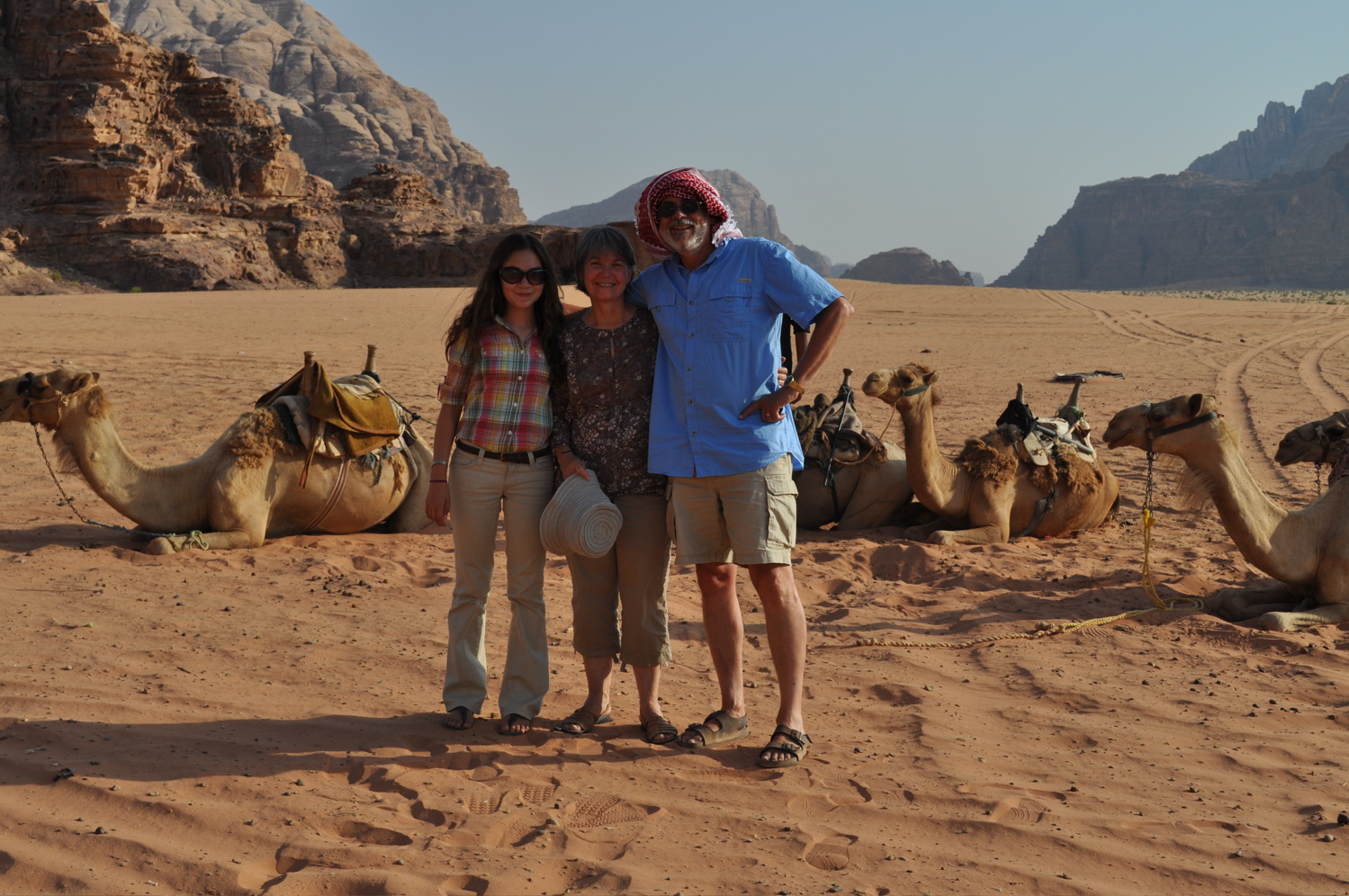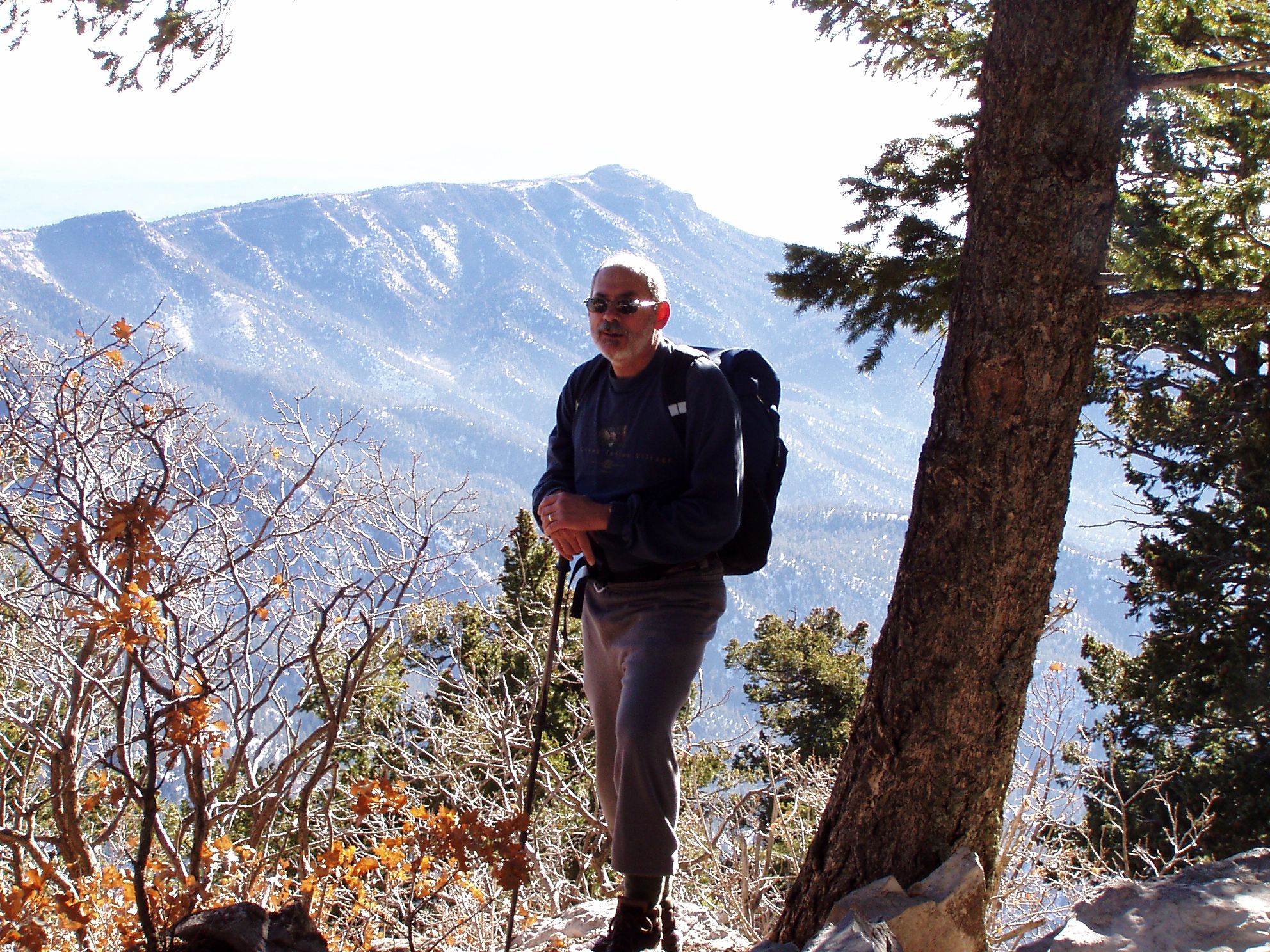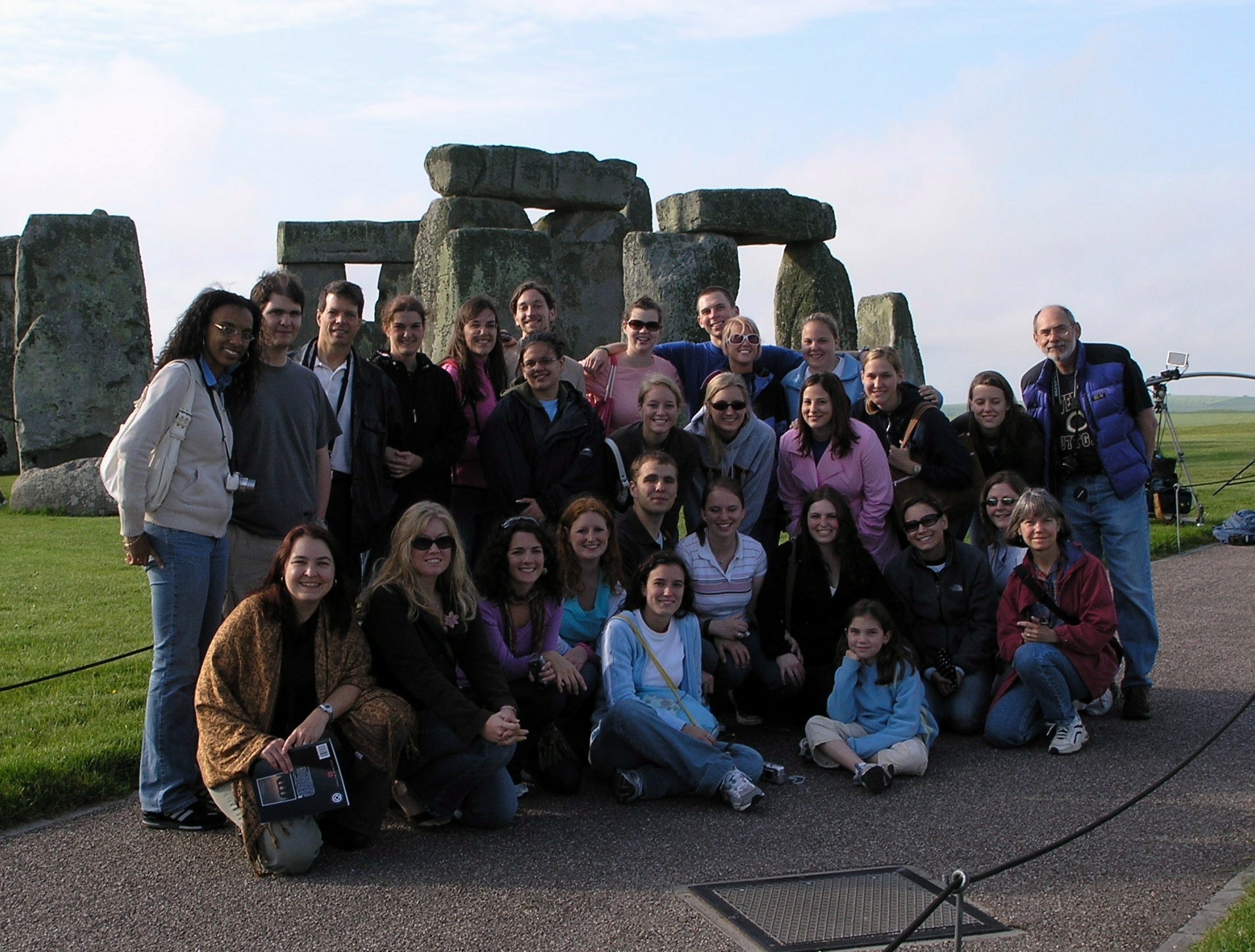



Dave Pruett holds an undergraduate degree (1970) in mechanical engineering from Virginia Tech and MS and PhD degrees in applied mathematics from the Universities of Virginia (1980, advisor James E. Mann, Jr.) and Arizona (1986, advisor Hermann Fasel), respectively.
Before joining the faculty of JMU in January 1996, he taught at Virginia Commonwealth University and The College of William and Mary. Additionally, he has nearly a decade of aerospace-related experience at NASA Langley Research Center, where he conducted supercomputer simulations to study the transition of high-speed fluid flows from laminar (ordered) to turbulent (chaotic) states. This type of research, known as direct numerical simulation (DNS), combines fluid mechanics, numerical methods, hydrodynamic stability, and supercomputing. In 1996, his computational work (directed initially by Thomas A. Zang) received recognition through the Robert T. Knapp Award of ASME International. In 1998, he was an ERCOFTAC-sponsored visiting scientist at the Institute of Fluid Dynamics of the Swiss Federal Institute of Technology (ETH) in Zurich. In the summers of 2003 and 2013, he spent two weeks as a visiting scientist at the Institute for Aerodynamics and Gasdynamics at the University of Stuttgart, and in summer 2008, he held a similar short-term position at the Lehrstuhl fuer Aerodynamik at the Technical University of Munich.
During his early years at JMU, Dr. Pruett participated with professors Jim Sochacki, Bill Ingham, and Dorn Peterson in the establishment of an interdisciplinary, NSF-sponsored undergraduate program in computational science. He developed and taught two innovative Honors courses: From Black Elk to Black Holes--Shaping a Myth for a New Millennium (HON200D, 1999, 2000, 2002, 2004, HON210, 2009), which received a "Science-Religion" course award in 2001 from the Center for Theology and the Natural Sciences (affiliated with the Templeton Foundation), and "Great Questions: Questions That Have Changed the World" (HON200E, 2005). The former is featured in the Fall 2009 issue of Madison. In addition, Dr. Pruett has co-led two international courses: LS 310 with JMU's 2005 London Institute and IDLS 391 (London Science) in 2011.
You can teach an old dog new tricks. "Dr. P" participated enthusiastically in the 2007 "Boot Camp for Profs," held in Leadville, CO. He has received a number of academic awards: the 2004 Distinguished Teaching Award of the College of Science and Mathematics (CSM), the 2008-2009 CSM Madison Scholar Award, the first (2008) Provost's Award for Excellence in Honors Teaching, and the University's first Mengebier Endowed Professorship (2008), a generous gift of the Class of 1958 to JMU in tribute to the late Prof. William Mengebier, beloved former head of the Biology Department. Dr. Pruett delivered the College's (Science and Mathematics) commencement address in May 2009.
Upon completion of the 2011-2012 academic year, Dr. Pruett retired, "graduating" to emeritus professor. This momentous life event coincided with the publication in May 2012 of his book Reason and Wonder: A Copernican Revolution in Science and Spirit by Praeger. In 2015, Dr. Pruett received an honor, extraordinarily generous and totally unexpected, when Michael and Susan Brown, the parents of Dr. Pruett's former student and PASS instructor Katherine Brown, created the Dave Pruett Faculty Endowment for Excellence in Teaching.
Among his interests outside the classroom are reading, writing, hiking, cycling, guitar, photography, and traveling. Dr. Pruett's wife, Suzanne Fiederlein, is the associate director of JMU's Center for International Stabilization and Recovery (CISR). They have one daughter, Elena, an undergraduate student at Brown University. A photo below shows the family in summer 2010 in Jordan, where Suzanne's work has taken her numerous times.
 |
 |
| Wadi Rum, Jordan, 2010, courtesy of Hasan, our driver. | Sandia Crest Trail, 10,000 ft., Albuquerque, NM, Dec. 20, 2003, courtesy Sheldon Tieszen. |
 |
 |
| 2005 JMU London Institute Group Photo | 2011 JMU London Science Group in Cambridge |